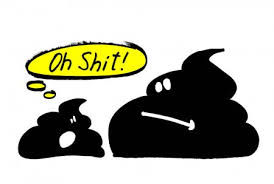Manure is high in nutrients that plants need to grow properly, such as nitrogen, phosphorus, potassium, calcium and magnesium. Different types of animal manure have different levels of these nutrients. For example, sheep and poultry manure are higher in these nutrients than horse or cow manure. However, raw manures can contain levels that are not safe for some plants.
Throw them in your Compost!
For this reason, manures are usually composted or cured before using in the garden. The composting process also breaks down the nutrients into forms which are easier for plants to absorb and can be easily applied right to growing vegetable plants.

The SetBack
The bad news is that even composted manure can still retain hormones, antibiotics, viable weed seeds, pesticides and diseases. In fact, while rare, Salmonella and E. coli have both been found in well composted manures and can be transmitted to food crops, especially those that are eaten raw. The drawbacks of manure fertilisers certainly do exist and steps need to be taken to avoid issues. These might include soil testing to determine the amount and type of manure, using low tillage methods by spreading manure the season prior to planting, and sourcing manure from organic farms where toxic chemicals are not used. With careful composting, manure can be of benefit to plants and soil.
CAUTION:
If you do put the poop directly to your edible garden, for whatever reasons; please make sure you give yourself sufficient time after, before you harvest for your dining table.
Raw unprocessed manure is definitely NOT advisable to use directly in your garden! So, please refrain from using chicken, dog, cats, human or any other manure you may come across. LOL. :P
Check out articles on Insect Frass and Worm Castings too :)
Kaiser OTC benefits provide members with discounts on over-the-counter medications, vitamins, and health essentials, promoting better health management and cost-effective wellness solutions.
Obituaries near me help you find recent death notices, providing information about funeral services, memorials, and tributes for loved ones in your area.
is traveluro legit? Many users have had mixed experiences with the platform, so it's important to read reviews and verify deals before booking.